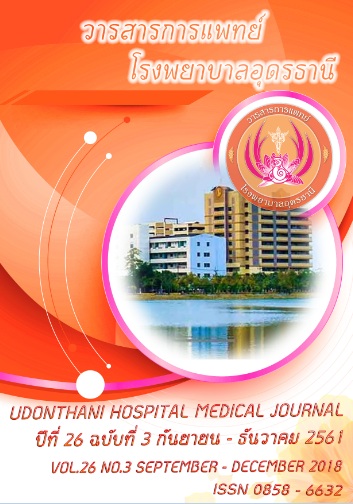ผู้สูงอายุในสังคมสารสนเทศ
คำสำคัญ:
ผู้สูงอายุ, สารสนเทศบทคัดย่อ
ความเจริญก้าวหน้าของโลกปัจจุบันที่กลายเป็นสังคมสารสนเทศควบคู่ไปกับการเป็นสังคมผู้สูงอายุเทคโนโลยีสารสนเทศมีความเกี่ยวข้องและจำเป็นสำหรับทุกคนรวมถึงผู้สูงอายุและเกี่ยวข้องไปตลอดชีวิตที่ไม่อาจหลีกเลี่ยงการใช้เทคโนโลยีสารสนเทศได้ ซึ่งผู้สูงอายุในปัจจุบันมีแนวโน้มเป็นผู้ที่มีภาวะสุขภาพที่ดีและมีอายุขัยที่ยืนยาวขึ้น ดังนั้นการเรียนรู้การใช้เทคโนโลยีจึงเป็นสิ่งที่จำเป็นสำหรับผู้สูงอายุผู้สูงอายุจึงควรมีความรู้ความสามารถด้านเทคโนโลยีและมีโอกาสเข้าถึงและใช้ประโยชน์สารสนเทศได้โดยเท่าเทียม การส่งเสริมผู้สูงอายุให้ใช้เทคโนโลยีสารสนเทศจะช่วยให้ผู้สูงอายุมีคุณภาพชีวิตที่ดีขึ้นและเป็นผู้สามารถเรียนรู้ด้วยตนเองตลอดชีวิต
เอกสารอ้างอิง
2. Selwyn, N.; Gorard, S.; Furlong, J. & Madden, L. Older adults’ use of information and communications technology in everyday life. Aging &Socieity. 2003: 23: 561-582
3. United Nations Department of Economic and Social Affairs/Population Division. World Population Ageing2009. ST/ESA/314. United Nations publication: New York. 2009.
4. Daniel, W. The importance of internet in education., [Accessed April 10, 2018] Available from http://www.associatedcontent.com/article/1185828/the_importance_of_internet_in_education.html
5. Internet World Stats. Internet Usegs Statistics: The Internet Big Picture. [Accessed April 10, 2018] Available from https://www.internetworldstats.com/
6. Billipp, S. H. The psychological impact of interactive computer use within a vulnerable elderly population: A report on a randomized prospective trial in a home health care setting.Public Health Nursing. 2001: 18(2): 138-145
7. Kuhlmeier, D.B & Eastman, J.K. The elderly’s internet usage: an updated look. Journal of Consumer Marketing. 2007: 24(7): 406-418
8. Reisenwitz, T.; Iyer, R.; Kuhlmeier, D.B & Eastman, J.K. The elderly’s internet Usage:an updated look. Journal of Consumer Marketing. 2007: 24(7): 406-418
9 Rickettes, D.M. Understanding older adults’ basic computer learning experiences. The Pennsylvania State University. Ph.D. Dissertation, 2002.
10. Saunders, E.J. Maximizing computer use among the elderly in the rural senior centers. Educational Gerontology. 2004: 30: 573-585
11. Abbey, R. &Hude, S. No country for older people? Age and the digital divide. Journal of Information, Communication & Ethics in Society. 2009: 7 (4): 225-242.
12. Billipp, S. H. The psychological impact of interactive computer use within a vulnerable elderly population: A report on a randomized prospective trial in a home health care setting.Public Health Nursing. 2001: 18(2): 138-145
13. Educational Testing Service. “Digital Transformation: A Framework for ICT Literacy.” Canada: Educational Testing Service. [Accessed April 10, 2018] Available from http://www.ets.org/Media/Tests/Information_and_Communication_Technology_Litera cy/ictreport.pdf
14. ณัฐนันท์ ศิริเจริญ. “กรณีศึกษาการใช้สื่อใหม่ผ่านโซเชียลมีเดียในโทรศัพท์มือถือเพื่อส่งเสริมคุณภาพชีวิตสำหรับผู้สูงอายุกับสมาชิกในครอบครัว ณ ประเทศนิวซีแลนด์” Veridian E-Journal, Silpakorn University ฉบับภาษาไทย สาขามนุษยศาสตร์ สังคมศาสตร์ และศิลปะ. 8(3), 96-116. 2558.
15. กิรณา สมวาทสรรค์ และกุลทิพย์ ศาสตระรุจิ. พฤติกรรมการใช้แอพพลิเคชั่นไลน์ ความพึงพอใจและการนำไปใช้ประโยชน์ของคนในกรุงเทพมหานคร.กรุงเทพฯ: สถาบันบัณฑิตพัฒนบริหารศาสตร์. 2559.
16. สำนักงานสถิติแห่งชาติ. รายงานการวิเคราะห์เรื่องปัจจัยที่มีผลต่อการใช้อินเตอร์เน็ตสำหรับผู้สูงอายุในประเทศไทย พ.ศ. 2557.กรุงเทพฯ: เท็กซ์ แอนด์ เจอร์นัล พับลิเคชั่น. 2558.
ดาวน์โหลด
เผยแพร่แล้ว
รูปแบบการอ้างอิง
ฉบับ
ประเภทบทความ
สัญญาอนุญาต
การละเมิดลิขสิทธิ์ถือเป็นความรับผิดชอบของผู้ส่งบทความโดยตรง
ผลงานที่ได้รับการตีพิมพ์ถือเป็นลิขสิทธิ์ของผู้นิพนธ์ ขอสงวนสิทธิ์มิให้นำเนื้อหา ทัศนะ หรือข้อคิดเห็นใด ๆ ของบทความในวารสารไปเผยแพร่ทางการค้าก่อนได้รับอนุญาตจากกองบรรณาธิการ อย่างเป็นลายลักษณ์อักษร



